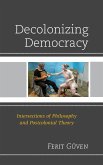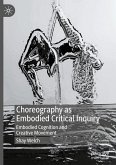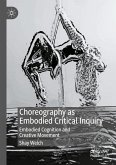This book explores the intersection of improvised music-making and political community-building, with particular attention to creative ways to redress historic injustices and to constitute responsive, democratic societies.
Hinweis: Dieser Artikel kann nur an eine deutsche Lieferadresse ausgeliefert werden.
Hinweis: Dieser Artikel kann nur an eine deutsche Lieferadresse ausgeliefert werden.








